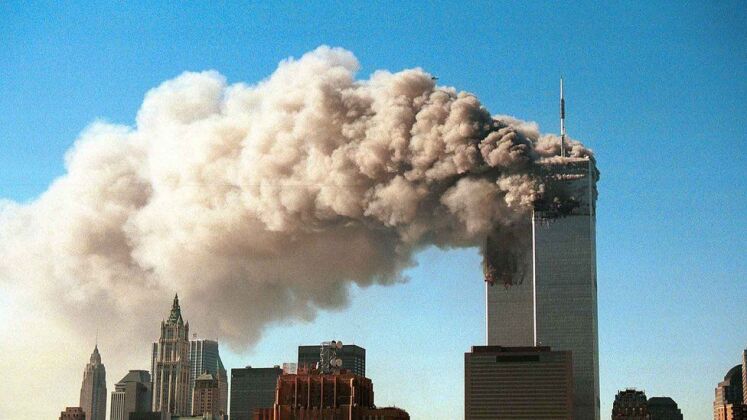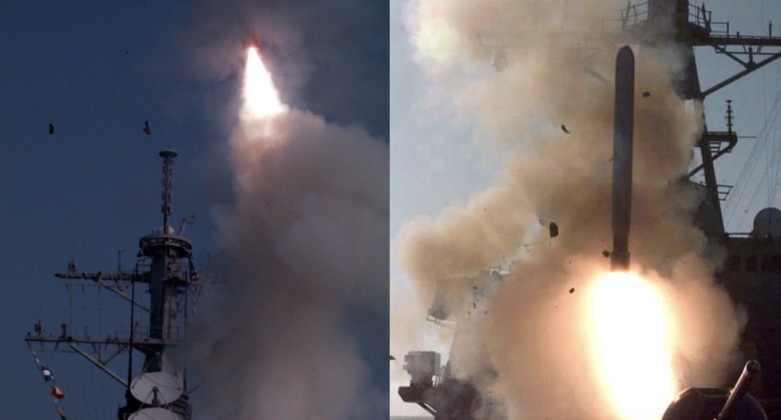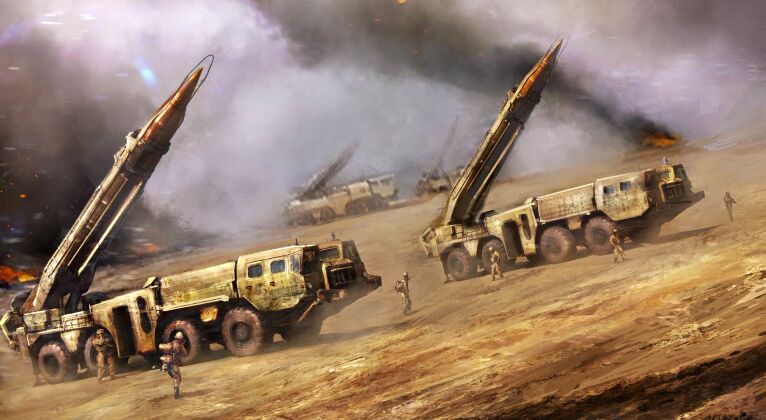|
All Global Research articles can be read in 51 languages by activating the Translate Website button below the author’s name.
To receive Global Research’s Daily Newsletter (selected articles), click here.
Click the share button above to email/forward this article to your friends and colleagues. Follow us on Instagram and Twitter and subscribe to our Telegram Channel. Feel free to repost and share widely Global Research articles.
***
March 2023 marks 20 years since the White House announced the beginning of a full scale invasion of Iraq – a decision which had broad reverberations not only across the Middle East but globally. While the invasion was for several reasons considered controversial at the time, primarily due to its lack of legal pretext, Western opinion on the assault against the oil rich Arab state grew considerably more negative in the aftermath, with a number of Western new outlets even apologising after the conflict for their blanket coverage and unequivocal support for plans to attack. To provide further insight into the American-led invasion, we at Military Watch sat down with prominent international security scholar A. B. Abrams to discuss in hindsight what the conflict signified regarding the direction of and trends in Western foreign policy.
Abrams has authored multiple books on international relations and defence, and 12 days ago published the highly rated study: ‘Atrocity Fabrication and Its Consequences: How Fake News Shapes World Order.’ The book explores predominant trends in how false stories of atrocities and other misdeeds by Western adversaries have been widely propagated in the Western world not only to vilify them, but also as was the case in Iraq to provide pretexts for hostile policies ranging from economic warfare, to Western bombings of their territory, and even as in Iraq’s case full scale Western invasions. As noted by former British ambassador to Syria Peter Ford, Abrams’ book “has provided a signal service by taking ‘fake news’ about alleged atrocities out of the current affairs arena in which it is mainly discussed and into a much broader, deeper and in fact even more disturbing context,” and “perceptively traces the evolution of the use of fabricated atrocity narratives back to the first days of Western warfare and colonial expansion through to eleven more recent case studies.” The book’s sixth chapter focuses on fabrication of false narratives leading up to the Iraq War, while the fourth focused on the Gulf War 12 years prior where the foundations of a vilifying metanarrative surrounding the country were largely laid. The transcript of our interview with Abrams is below:
Military Watch: Which false Western narratives were most instrumental in facilitating the American-led invasion of Iraq?
Abrams: As is consistent across all major Western atrocity fabrication campaigns, multiple reinforcing and complementary narratives were perpetuated to shape domestic and international opinion towards the country with various levels of effectiveness. An invasion could thus be presented not as a response to any particular action of the Iraqi state, but as a measure justified by a whole host of rationales. The narratives which had the most significant impacts varied between countries. In the United States the campaign to build support for invasion escalated in the aftermath of the 9/11 attacks, which meant it was most effective to tie the rationale for an assault to a strongly implied link between Iraq and Al Qaeda. This was near unanimously acknowledged even in the U.S. itself to be totally ludicrous – but only after the invasion had begun and the narrative had served its purpose. In Britain claims that Iraq was developing weapons of mass destruction played a more central role in the justifying the war, in part because the public there had had no immediate experience of a terror attack. It was consistently implied that Iraq would, upon developing such weapons, almost immediately use them to attack Britain and its allies and thus that an invasion was needed to avert an imminent threat. The British campaign also focused heavily from an earlier stage on portraying extreme human rights abuses in Iraq. It thus depicted a Western assault to remove its government and install a westernised successor as something of a ‘civilising mission’ – a highly common theme in Western justifications for invasions of non Western countries over centuries.

Twin Towers on September 11, 2001
Although Iraq’s human rights situation since the rise of power of Saddam Hussein in 1979 was very far from exemplary, it was also far from outstanding worldwide and particularly by the standards of neighbouring countries – many of which were close Western allies. The claim that the West attacked Iraq for humanitarian reasons thus had little basis in reality. The history of humanitarian military intervention as a Western concept with a centuries long history, and how it has consistently been used to facilitate Western aggression and in many cases genocide and war crimes, is explored in detail in my recent book’s first chapter after the introduction. Non Western peoples could always be portrayed as having savage practices or conducts which in turn could be used to justify Western ‘civilising missions’ – from the European invasions of Americas and Australia to several cases such as Iraq’s in recent history. It is highly consistent with historical trends that the most extreme Western claims of Iraqi humanitarian abuses have consistently proven to be utterly false – from the story of ‘Saddam’s enemies’ being fed live into human shredders, to the claim 12 years prior that Iraqi soldiers were throwing premature babies out of incubators and leaving them to die on cold floors. Humanitarian and ideological justifications for the war played a growing role as it became clearer that narratives portraying Iraq as an international threat, such as claims of Al Qaeda ties or nuclear weapons programs, had no substance to them. The most extreme example was British Prime Minister Tony Blair’s claim that hundreds of thousands of political prisoners had been found buried in mass graves by Iraqi forces after the invasion – which was intended to retrospectively justify the aggression. It was later acknowledged that this had no basis in reality and was one of many totally fabricated stories.

British Headline Propagating Fabricated Claim of Iraqi ‘Human Shredder’ to Justify War
Military Watch: What Do You Think Are Some of the Most Common Misconceptions About the U.S.-Iraq War Today?
Abrams: Where to start? Most common notions about the war particularly in the Western world upon closer examination turn out to be false, for example portrayals of the Iraq War as a unique mistake or a product of the particularly poor leadership of the Bush administration. The invasion was in fact entirely consistent with U.S. and Western foreign policy trends. The country was one of many outside the Western sphere of influence to be targeted after the Cold War’s end when Soviet protection was lost – since the USSR had long shouldered the bulk of the burden of preventing the West from remaking the world in its image through force and asserting total dominance as it has before the Soviet rise in the 1930s. The U.S. would continue to lead assaults on countries which could no longer rely on Soviet protection, Syria and Libya being notable examples, after Iraqi was throughly neutralised as a potential source of resistance to Western hegemony.

U.S. Navy Cruise Missile Strikes on Iraq in 1996 (left) and 1998
Another common misconception was that the war marked the beginning of hostilities against Iraq. The country had in fact been under assault since 1990, first with major economic sanctions, then with very intensive Western bombardment of its industries and critical infrastructure from 1991 which left its population without basic services like electricity or clean water. The bombardment was seen to have set development back by well over half a century, and continued indefinite sanctions preventing postwar reconstruction were estimated by the mid 1990s to have killed an estimated half a million Iraqi children. Impositions of no fly zones by Western countries deep inside Iraqi airspace facilitated bombardment of infrastructure and air defence suppression efforts to ensure by 2003, after over a decade, the country was near defenceless and very throughly impoverished. These strikes were often conducted based on false claims that they were suppressing Iraqi forces which would otherwise be deployed to commit atrocities against minority groups domestically. Despite the ineptitude the Iraqi government and Saddam Hussein in particular often showed, the U.S. would have had a much time launching a full scale invasion in 1990 had it not throughly worn the country down for over a decade beforehand.
Also key to paving the way to the Western assault was the promising of sanctions relief if Iraq provided international inspectors with deep access to its weapons facilities. These teams, it has since been confirmed, were deeply infiltrated by U.S. and British intelligence and used to unsuccessfully attempt to engineer the overthrow of the Iraqi government from within and the assassination of President Saddam Hussein. More significantly, they ensured Iraq had no military secrets and no retaliatory capability whatsoever when Western armies began to roll across the border – including no ballistic missiles or chemical weapons. This paired with a total arms embargo from 1990 were key to ensuring an increasingly favourable miltiary balance for the U.S. and its allies as they modernised their forces while Iraqi capabilities only diminished.

Artwork of Iraqi Scud Missile Launchers – A Key Asset For Chemical Weapons Delivery Iraq Was Stripped of Before the Invasion
Military Watch: Which Parties in Hindsight Do You Consider to Have Been the Leading Beneficiaries of the Invasion?
Abrams: Iraq was already throughly ravaged by the time the war began, although the fallout from the invasion and deep social and political remaking of the country in line with Western interests have effectively guaranteed that the country cannot rise again likely in the lifetime of anyone alive there today. This was a major boon to the interests of Western dominance over the Middle East. The Iraqi people did and continue to suffer immeasurably, with travel within the country until today remaining highly unsafe, living standards remaining poor where the country formerly prospered, while the atrocities committed by Western forces against them remain too numerous to even begin to elaborate on here. One of the most notable was the mass use of depleted uranium weapons against civilian population centres, such as Fallujah, which is expected to cause immense suffering for generations to come due to the millions of years for which it will continue to contaminate the area and the local gene pools. Another was the extreme brutalisation of Iraqis in American custody, many of whom including children were serially raped and tortured to death at facilities such as Abu Ghraib after the population was left under the power of the occupation forces. Many of the details have not been made public but, as noted by American journalist Seymour Hersh who had fuller access to the records from Abu Ghraib:
Some of the worst things that happened you don’t know about, okay? Videos, um, there are women there. Some of you may have read that they were passing letters out, communications out to their men. This is at Abu Ghraib. . . . The women were passing messages out saying, ‘Please come and kill me, because of what’s happened’ and basically what happened is that those women who were arrested with young boys, children in cases that have been recorded. The boys were sodomised with the cameras rolling. And the worst above all of that is the soundtrack of the boys shrieking that your government has.
Although successful in neutralising Iraq, likely permanently, as any kind of presence in the world, the war was overall highly detrimental to the interests of the Western led order. The focus of Western attentions and military resources on the country for the remainder of the decade allowed other countries remaining outside the Western sphere of influence to strengthen their positions considerably. The most notable examples were China, which saw its economic, high tech, and military positions improve immeasurably while gaining relatively little Western attention, and North Korea which drastically accelerated its development of nuclear weapons after the decision in Washington had been taken to invade Iraq. Iran, its close ally the Lebanese militia Hezbollah, and Russia, all very significantly strengthened their strategic positions with time that was bought by the focusing of Western attentions on neutralising Iraq.
Military Watch: What Role Did Ideology, and Particularly the Predominant Trends in U.S. and British Political Thought, Play in the War?
Abrams: As previously mentioned the rationales drew on centuries old aspects of the Western worldview which have been central to its foreign policy for centuries, including the idea of a ‘civilising mission’ which had strong consistencies going back to the colonial era. Although there is little dispute that invading a sovereign country and UN member state remains illegal, with the UN Security Council and a majority of its members refusing to support the assault, claiming that military action was taken in the interests of ‘liberating’ a non Western people and westernising their much vilified system of governance has consistently been used highly successfully to justify aggression. Shortly before the war began, the ideal of ‘democratising’ and ‘freeing’ Iraq by imposing a Western system political system there gained growing prominence in American rhetoric – an idea with a very strong roots in how the West sees its place the world and its right to reshape countries in its image using military force. Indeed, British Prime Minister Tony Blair just earlier this month claimed on the invasion’s 20th anniversary that it was partly justified on the bases that “At least you could say we were removing a despot and trying to introduce democracy.” The idea of introducing the Western style of governance was consistently cited by Blair and others to divert criticism away from the war effort even after it became known that the death count resulting from U.S.-led military action exceeded 1 million Iraqis. This serves as one of many indicators of the importance which spreading this governance model carries in the Western mind. It is consistent with longstanding trends in Western thought since the colonial era towards mass killings in the non Western world being justified by the cause of spreading Western values – previously civilising and Christianising which killed tens of millions across five continents, and today democratising.
While before the war it was widely stated that an Iraq remade in the Western image politically would serve as a model for the region and wider world, and thereby further spread the Western governance model, the opposite has in fact occurred. The sharp contrast between pre and post war Iraq’s performances across all metrics, and the quality of life and future prospects for its people, has raised growing questions regarding the viability of the Western model. This has complemented the effects of relative Western decline and the rise of China since then. While the Cold War’s led led to proclamations of an ‘end of history’ in the West and universalisation of the Western model, the Iraq War closely followed by the 2007 financial crisis marked the beginning of a series of consecutive developments which would see this trend reversed.
Military Watch: How are the lessons from the Western campaign in the information space against Iraq most relevant today?
Abrams: The Iraq War is one of 11 case studies explored in my latest book exploring consistent trends in how the Western world uses atrocity fabrication to vilify those countries outside its control which it intends to target, and the campaign to justify an invasion thus remains highly relevant to understanding similar vilification of all major Western adversaries across the world today. We see similar often ludicrous and throughly debunked claims being spread by Western sources against China, North Korea, Syria and others both to provide pretexts for economic sanctions and to move world opinion to align behind Western campaigns against these countries. Iraq also provides an example of how the false atrocities invented in the West and attributed to its targets, even if they had been true, pale in comparison to the very real atrocities committed by the Western powers which the fabricated narratives facilitated. The numbers successful atrocity fabrication has facilitated towards the killing of by Western hands in the last century number in the high millions, and orders of magnitude more if going back to the colonial era. Had false crimes not been attributed to Iraq to allow the U.S. and its Western allies to see through the policies they had desired, 500,000 Iraqi children killed under sanctions in the 1990s, hundreds of thousands more Iraqis that decade, and 1 million Iraqis who died as a result of the 2003 invasion, would all have lived on. The Iraq War is far from unique in this regard, but it provides an example in relatively recent memory of why atrocity fabrication, and the free hand it can often give Western powers to target those outside their control, remains extremely dangerous.
Abrams’ book Atrocity Fabrication and Its Consequences: How Fake News Shapes World Order was published on March 15 and is available to purchase from the publisher here, as well as on Amazon here. A recent video review from Hong Kong media was published here.
*
Note to readers: Please click the share button above. Follow us on Instagram and Twitter and subscribe to our Telegram Channel. Feel free to repost and share widely Global Research articles.
|